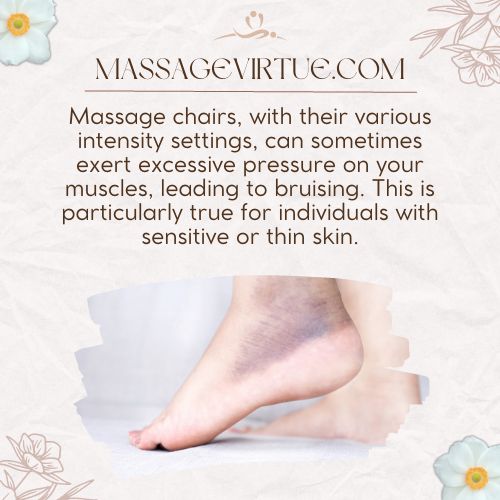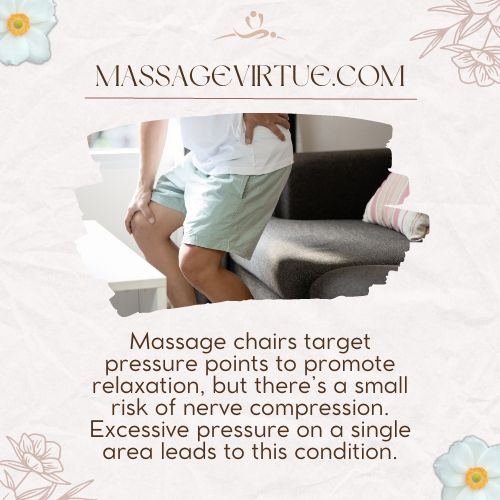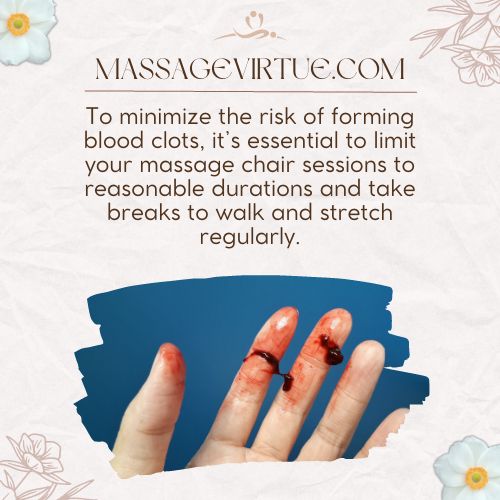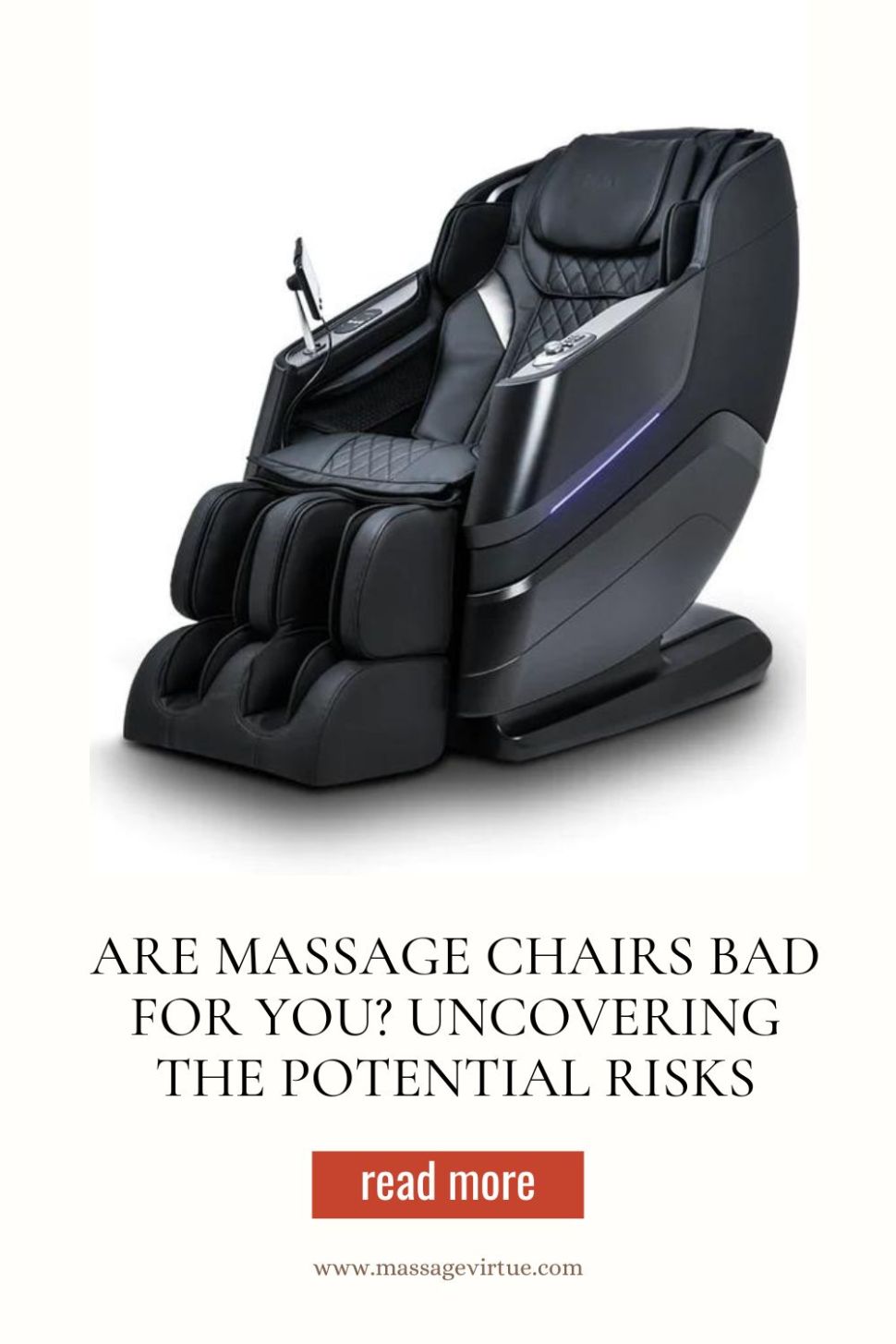If you’re considering buying a massage chair or already have one, it’s essential to understand both the benefits and potential drawbacks of using this convenient piece of relaxation equipment.
While massage chairs can offer numerous health benefits, they might not be suitable for everyone.
In this article, we’ll discuss the negative effects of massage chairs, so you can make an informed decision about their use.
Are Massage Chairs Bad For You?
Massage chairs are not bad for you, but they can be if overused. They can help to relax muscles, improve circulation, and reduce stress.
However, if you use them for too long or too often, they can cause muscle damage, inflammation, and bruising. It is important to use a massage chair in moderation and to listen to your body.
If you experience any pain or discomfort, stop using the chair immediately.
Negative Effects of Massage Chairs
While massage chairs provide numerous benefits, they also come with certain risks that need to be considered. Let’s take a closer look at these potential drawbacks.
1. Muscle Bruising
Massage chairs, with their various intensity settings, can sometimes exert excessive pressure on your muscles, leading to bruising.

This is particularly true for individuals with sensitive or thin skin.
To avoid bruising, it’s crucial to use the massage chair responsibly and select the appropriate settings that suit your comfort level.
2. The Strain on Joints
One common drawback of using massage chairs is the potential strain they may impose on your joints.
The repetitive movements and pressure applied during the massage can lead to discomfort, particularly for individuals with pre-existing joint issues.
To mitigate this, limit your usage and opt for massage chair techniques that prioritize muscle relaxation over aggressive kneading.
3. Skin Irritation
Some users may experience skin irritation after using a massage chair, especially if they have allergies or sensitive skin.
The materials used in the chair’s upholstery or the pressure applied during the massage can trigger mild irritation.
Prevent this issue by placing a soft towel or cloth between your skin and the chair’s surface.
4. Nerve Compression
Massage chairs target pressure points to promote relaxation, but there’s a small risk of nerve compression.
Overapplying pressure or focusing on a single area for too long can lead to discomfort or tingling sensations.

It’s essential to choose massage chair settings that offer a gentle and evenly distributed massage across your body.
5. Blood Pressure Fluctuations
Individuals with hypertension or cardiovascular conditions should exercise caution while using a massage chair.
The intense squeezing and kneading actions of some massage chair features can lead to fluctuations in blood pressure.
If you have a history of high blood pressure, consult your healthcare provider before using a massage chair.
Always monitor your blood pressure during and after a massage session to ensure your safety.
6. Risk of Blood Clots
For people at risk of developing blood clots, using a massage chair may pose potential risks.
Prolonged sitting or remaining in one position for an extended period, can impede blood flow and increase the risk of blood clots.

To minimize this risk, it’s essential to limit your massage chair sessions to reasonable durations and take breaks to walk and stretch regularly.
7. Headache or Dizziness
Although rare, some individuals may experience headaches or dizziness after using a massage chair, especially if the massage chair is too intense or lasts for an extended period.
Pay close attention to your body’s signals during the massage, and if you start feeling uncomfortable or lightheaded, stop using the chair immediately.
Moderation is key when using a massage chair to prevent any adverse reactions.
Pros and Cons of Using a Massage Chair
| Pros | Cons |
| Muscle relaxation and stress relief | Muscle bruising and joint strain |
| Improved blood circulation | Skin irritation and nerve compression |
| Convenience and accessibility | Blood pressure fluctuations |
| Potential pain relief | Risk of blood clots |
| Enhanced relaxation and well-being | Headache or dizziness |
Do Doctors Recommend Massage Chairs?
Doctors often recommend massage chairs for their potential benefits in muscle relaxation, stress relief, and improved blood circulation.
However, caution is advised for individuals with certain health conditions, such as sensitive skin, joint problems, hypertension, or a history of blood clots.
Consult with a healthcare provider before using a massage chair.
You should listen to your body’s signals during the massage for a safe and enjoyable experience.
Conclusion
While massage chairs offer numerous benefits, it’s vital to be aware of their potential risks.
If you’re considering using a massage chair, consult with your healthcare provider, especially if you have any pre-existing health conditions.
Remember to use the chair responsibly, adjust settings to your comfort level, and always listen to your body’s feedback during the massage.


